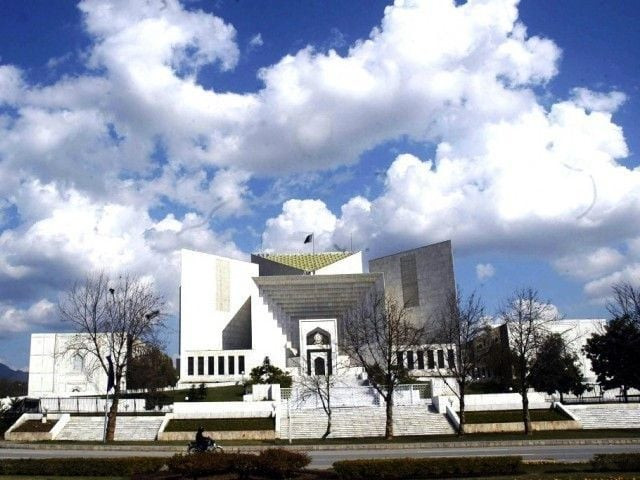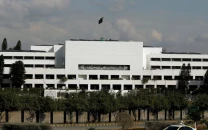SC sets guidelines for criminal cases
Refers murder case to trial court for rewriting of verdict

The Supreme Court has held that the trial courts, seized with a criminal case, are squarely required to adhere to the provision of sections 265-C, 265-D of the Criminal Procedure Code (CrPC) to initiate trial before framing of charge as ordained to meet the spirit of the law of the land.
In a majority judgement, the apex court issued guidelines to trial courts for deciding criminal cases in future.
Justice Sayyed Mazahar Ali Akbar Naqvi underscored the adherence to the provisions while instructing to remand an 11-year-old murder case to a trial court for the purpose of re-writing its judgment on the basis of existing judicial record within two months strictly in accordance with law and the guidelines.
The court ordered its office to send a copy of the judgment to the registrars of all high courts for its onward circulation to the judges for future guidance.
Another member of the bench, Justice Umar Ata Bandial, also endorsed Justice Naqvi's opinion in a murder case wherein five accused were involved. However, the trial court convicted them of separate offences.
However, Justice Mazhar Alam Miankhel disagreed with the majority judgment and issued a separate note in which he said sending back the case of the petitioners after about 10 years would be nothing short of increasing their agonies and anguish.
Read SC to resume presidential reference hearing on May 9
Considering that the man in question who was convicted under Section 302(b) PPC and another man convicted according to his individual role, the majority judgment posed the question whether both the sentences in all eventuality were in consonance with the spirit of Section 302/324/34 PPC (common intention) or if the number of accused are five or more under Section 302/148/149 PPC (common object).
The court while giving guidelines said that the trial court was under obligation to fulfil the requirement to frame the charge, while minutely looking into the contents of the crime report, statement of the prosecution witnesses under Section 161 CrPC, report under section 173 CrPC and all other documents appended with the challan with an intent to evaluate whether the criminal act as disclosed has been committed in furtherance of joining hands, which attracts the ingredients of common intention or common object (Section 148/149 PPC read with the substantive offence) if so, the charge would be framed accordingly.
The judgment noted that the trial court while rendering such a finding has to disclose judicial reasoning.
‘Not advisable under the law’
However, authoring a dissenting note, Justice Miankhel noted that by sending their case back to dilate upon the same evidence and the issue, which has already been dealt with by the courts below and the complainant party has also accepted the same and never raised such issue by questioning the verdicts of the courts, would serve no purpose and not advisable under the law, especially, when the other three accused have earned an acquittal to its finality.
"Sending back the case of the two would also be against substantial justice. Besides the above, I am also unable to agree with the issuance of guidelines/directions by my learned brother for circulation to all the courts. No doubt this court is the highest court of appeal in the country and the law laid down by this court is binding on all the courts but issuance of directions to the subordinate courts to follow a particular course of action in criminal matters is not the domain of this court as this would be considered by the courts below to be binding as per the provisions of Article 189 of the Constitution of the Islamic Republic of Pakistan, 1973.”
He said, “In my opinion, every judge is independent and autonomous within its allocated sphere of jurisdiction and such direction would amount to interference in their independence which is not permissible under the law.”
He added that the appellate court indeed can uphold, modify or set aside the judgment of the lower fora but such guidelines cannot be held as an “act in aid” of the Supreme Court as contemplated in Article 190 of the Constitution.
“Such guidelines/directions being supervisory in nature would also amount to an encroachment upon the supervisory powers of the high court vesting in it under Article 203 of the Constitution," Justice Miankhel said.



















COMMENTS
Comments are moderated and generally will be posted if they are on-topic and not abusive.
For more information, please see our Comments FAQ